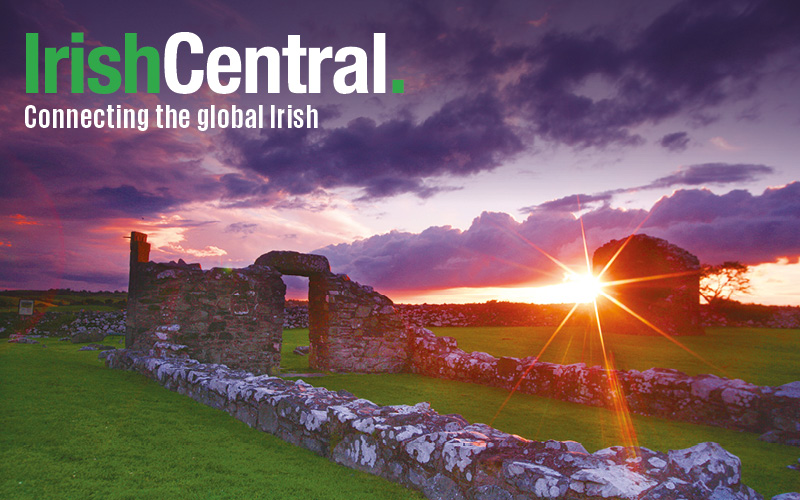I’ve been trying hard to get back on a merry wavelength. It is a sign of the times that are in it, locally and globally, that this is difficult. I would have been writing this week about pheasants, only I was captured by an intriguing article by Kenneth Haynes on IrishCentral.com last week.
Kenneth reported that both Ross Douthat of The New York Times and Damian Thompson of The Daily Telegraph in Britain have claimed that many of the Catholic Church sex scandals probably emanated from the "mean-spirited Jansenism" of the Irish clerical diaspora, especially since the iron reign of Cardinal Paul Cullen of Dublin of the 1860s.
It is with great pain that I have to forget my pheasants in order to largely agree with the argument.
However, my story below, told my way, places a lot of the blame for much of what has devastated the church recently not on the shoulders of cardinals directly, but on the shoulders of those we have always seen as saints.
I write of a lovely mother called Mary. I have lived among thousands exactly like her who behaved exactly like her in relation to thousands of sons called Patrick.
Maybe you will see the connection that I have always made.
Mary was a farmer's daughter from the west. She was one of a large family on a small farm. She was a beautiful spirit of a girl, she and her sisters and brothers.
The times were of hardship in Ireland back then. Two sisters entered the convent, one married locally like Mary, two emigrated.
One brother inherited the farm. The rest emigrated. It was the hard way it was.
Mary was married at 23 to a neighbor who was seven years older. He was a decent and hardworking man. You could not say that they loved each other. It was a marriage of mutual respect and rural pragmatics.
There was no sex education or contraception in the thirties or for decades thereafter. A child arrived every year for the first nine years. It was the way it was.
Mary was a great mother, a great hardworking wife both in the home and out of it in the farm. She was seen out making hay once two days after the child was born.
Seven children survived, two died in infancy, one from rheumatic fever and the other, a little girl, during a bad flu. She was left with four boys and three girls.
The parents had to work hard to support their family. They did that uncomplainingly. There was a bond of love with their children that was different to that between man and wife.
In all the hard times Mary was always fortified by her simple Catholic faith. The church was her bulwark against any bad thing that happened.
Prayer was her strongest remedy. Sunday Mass was her weekly injection of faith.
The priest on the altar was a demi-God. He could say or do no wrong. His word was law. He was a good man of the people.
He was a farmer's son too. He was known as a great man to help at a difficult calving, and he often did that.
Mary was raised in a culture of economic hardship which you constantly battled against. She knew if she followed all the laws of the church that she would eventually reach the eternal peace of heaven.
She spread that strong faith through her family from the time they were babies. At the nightly family Rosary there was something powerfully accepting about the way she would always strike her breast at the words "...this Valley of Tears..." during the Hail Holy Queen.
She was as protective of her children, always doing her very best for them, as the cat on the street with her kittens.
The children grew up. The farm was always going to go to the eldest son. He was bred for it. He loved the land like his father did.
The second son did, too. He was a strapping boy at 14. She decided he would make a great policeman and always nudged him that way. He eventually made a Dublin detective and did well.
The third lad was a bit wild. He emigrated to England at 17 and was not much heard of afterward.
The eldest girls were both beautiful gentle girls, dark-haired and tall. From the time they were 10 she knew they would be snapped up as wives. That is the way it happened.
The youngest daughter was a bright spark, highly intelligent from her father's side. She went young to her maiden aunt in Cork, did a secretarial course, married a solicitor in the practice. Later she went to university herself and qualified as a barrister.
This leaves us with Patrick, the youngest son, always different than his brothers. He was nearly carried off with rheumatic fever as a child but survived it.
Largely because he was seen as being a bit delicate afterward, he spent much less time out on the farm with the men than he did with his mother in the home.
He was a curly-haired lad, slight and tall, and had all the gentleness of the rest. He did better than any of the others at school and read a lot of fiction.
His sisters and mother were demonstrably fonder of him than of the other menfolk about the place. At 13 he had a great boy soprano voice and became locally famous in the choir especially at Christmas and Easter, golden voice soaring high beneath the spire.
Because he was delicate he did not get captured by the football passion in the way his brothers were. When he was drafted in to schoolboy teams now and again he was no good, especially to tackle, and tough neighbors' children sometimes called him a sissy. It is easy enough to get called that if you are not a macho kind of footballer.
When his voice broke at 15 Mary was broken hearted. She had loved hearing him sing in the chapel.
In that era of almost ferociously permeating Catholicism, it was a very special happening if a young lad received what they called The Call. It was said The Call to the priesthood came directly from Heaven to the young lad, and then he went off to the seminary to be priested.
It was the dream of the mothers like Mary to have a son who would be a priest. There would come the golden day when the son would be ordained and would celebrate Mass for the first time and give his first blessing to his parents.
You saw hundreds of those photographs in the local papers every year in the ordination season. The mothers' faces were always transformed. For one day they escaped the Valley of Tears.
When he was 17, Patrick was closer to his mother than to anyone else in the world. His father seemed on another planet, really, but his mother was always there for him as he was for her.
His older brothers were already drinking pints occasionally, and one of them was going out with the girl he would later marry.
Patrick showed only shyness in front of any girls he met either at home or through his sisters. He was not crazed by the sight of them like his wild brother was even before he went to England.
He was different that way and always had been. His mother saw that, but such matters were never discussed back then even between a pair as close as they were.
He was the only one in the house, though, who would often drop a kiss on the top of her head. Even the sisters did not do that hardly at all.
When he got The Call she was the one he told first, and she cried. There was a jealous neighbor, as always, and maybe more than that too who always claimed it was Mary got The Call, really, and subtly directed her son that way as she had intended all along.
When Patrick went off to the seminary, he met a lot of other lads, gentle decent lads, who were just like himself.
And the rest is history now.




Comments